Eventos economicos
Viernes
Situacion del empleo, ADP dijo que se crearon 91,000 empleos privados en Setiembre y ya sabemos que el gobierno no puede contratar mas personal. Se espera una creacion de 65,000 empleos.
Veremos si el desempleo cede o queda en 9.1%, se espera que el desempleo suba a 9.2%
Comercio Internacional
Credito del consumidor
Monster Employment Index
Employment Situation
8:30 AM ET
Wholesale Trade
10:00 AM ET
Consumer Credit
3:00 PM ET
Viernes 07/10/11 Cifras del empleo y nivel de desempleo
Re: Viernes 07/10/11 Cifras del empleo y nivel de desempleo
5:24 p.m. EDT 10/06/11Treasurys Price Chg Yield %
2-Year Note* -0/32 0.271
10-Year Note* -27/32 1.988
* at close
9:47 p.m. EDT 10/06/11Futures Last Change Settle
Crude Oil 82.38 -0.21 82.59
Gold 1655.1 1.9 1653.2
E-mini Dow 11024 -22 11046
E-mini S&P 500 1155.25 -2.25 1157.50
9:56 p.m. EDT 10/06/11Currencies Last (bid) Prior Day †
Japanese Yen (USD/JPY) 76.71 76.72
Euro (EUR/USD) 1.3420 1.3438
† Late Thursday in New York.
2-Year Note* -0/32 0.271
10-Year Note* -27/32 1.988
* at close
9:47 p.m. EDT 10/06/11Futures Last Change Settle
Crude Oil 82.38 -0.21 82.59
Gold 1655.1 1.9 1653.2
E-mini Dow 11024 -22 11046
E-mini S&P 500 1155.25 -2.25 1157.50
9:56 p.m. EDT 10/06/11Currencies Last (bid) Prior Day †
Japanese Yen (USD/JPY) 76.71 76.72
Euro (EUR/USD) 1.3420 1.3438
† Late Thursday in New York.
- admin
- Site Admin
- Mensajes: 165440
- Registrado: Mié Abr 21, 2010 9:02 pm
Re: Viernes 07/10/11 Cifras del empleo y nivel de desempleo
Copper October 06,21:58
Bid/Ask 3.2930 - 3.2960
Change +0.0260 +0.79%
Low/High 3.2670 - 3.2994
Charts
Nickel October 06,21:45
Bid/Ask 8.5596 - 8.6857
Change -0.0086 -0.10%
Low/High 8.5596 - 8.6929
Charts
Aluminum October 06,21:56
Bid/Ask 0.9885 - 0.9894
Change +0.0032 +0.32%
Low/High 0.9862 - 0.9921
Charts
Zinc October 06,21:54
Bid/Ask 0.8439 - 0.8454
Change -0.0039 -0.46%
Low/High 0.8427 - 0.8484
Charts
Lead October 06,21:50
Bid/Ask 0.8973 - 0.9009
Change -0.0036 -0.39%
Low/High 0.8927 - 0.9031
Bid/Ask 3.2930 - 3.2960
Change +0.0260 +0.79%
Low/High 3.2670 - 3.2994
Charts
Nickel October 06,21:45
Bid/Ask 8.5596 - 8.6857
Change -0.0086 -0.10%
Low/High 8.5596 - 8.6929
Charts
Aluminum October 06,21:56
Bid/Ask 0.9885 - 0.9894
Change +0.0032 +0.32%
Low/High 0.9862 - 0.9921
Charts
Zinc October 06,21:54
Bid/Ask 0.8439 - 0.8454
Change -0.0039 -0.46%
Low/High 0.8427 - 0.8484
Charts
Lead October 06,21:50
Bid/Ask 0.8973 - 0.9009
Change -0.0036 -0.39%
Low/High 0.8927 - 0.9031
- admin
- Site Admin
- Mensajes: 165440
- Registrado: Mié Abr 21, 2010 9:02 pm
Re: Viernes 07/10/11 Cifras del empleo y nivel de desempleo
Asia -Pacific
INDEX VALUE CHANGE % CHANGE TIME
NIKKEI 225 8,623.48 101.46 1.19% 21:39
HANG SENG INDEX 17,595.20 422.90 2.46% 21:42
S&P/ASX 200 INDEX 4,168.30 98.40 2.42% 21:58
INDEX VALUE CHANGE % CHANGE TIME
NIKKEI 225 8,623.48 101.46 1.19% 21:39
HANG SENG INDEX 17,595.20 422.90 2.46% 21:42
S&P/ASX 200 INDEX 4,168.30 98.40 2.42% 21:58
- admin
- Site Admin
- Mensajes: 165440
- Registrado: Mié Abr 21, 2010 9:02 pm
Re: Viernes 07/10/11 Cifras del empleo y nivel de desempleo
Bco Central Perú mantiene tasa en un 4,25 pct
jueves 6 de octubre de 2011 20:29 GYT
Imprimir[-] Texto [+] LIMA (Reuters) - El Banco Central de Perú mantuvo el jueves su tasa de interés clave en un 4,25 por ciento, por quinto mes consecutivo, como esperaba el mercado, ante un menor crecimiento del gasto privado y la producción, así como la acentuación de los riesgos financieros globales.
La autoridad monetaria ha mantenido la tasa estable desde junio, en medio de una desaceleración de la economía local en el primer semestre y la creciente incertidumbre respecto a la salud de la economía global.
La debilitada economía de Estados Unidos y la crisis de deuda en Europa -que se teme que podrían desencadenar una recesión mundial- han llevado a los bancos centrales a evaluar si mantienen o recortan las tasas de interés para impulsar a sus economías.
"De continuar estas tendencias, el Banco Central modificará su posición de política monetaria", precisó el ente emisor en un comunicado.
La autoridad monetaria explicó que la inflación de septiembre del 0,33 por ciento estuvo afectada por factores transitorios, acumulando una tasa de inflación anual de 3,73 por ciento, superior al rango meta de entre un 1 y un 3 por ciento.
Sin embargo precisó que la inflación sin alimentos y energía fue de un 0,25 por ciento en septiembre, acumulando una variación anualizada del 2,38 por ciento.
"Algunos indicadores actuales y adelantados de actividad muestran que el crecimiento de la economía se viene moderando, aunque sosteniendo en diversos componentes un ritmo vigoroso", dijo el banco.
El presidente de la autoridad monetaria, Julio Velarde, dijo el martes que no le preocupa la inflación en el corto plazo, ya que no existen presiones de demanda y los precios internacionales de las materias primas se han estabilizado.
Respecto al ámbito internacional, el Banco Central peruano afirmó que "persiste la mayor incertidumbre en los mercados financieros internacionales y su potencial efecto negativo sobre el crecimiento de la economía global".
"Consideramos que es una posición segura y en línea con la que la mayoría de la región está adoptando y en línea con el deseo del Gobierno de utilizar la política fiscal como primera herramienta para suavizar el impacto del contexto negativo global", dijo Pedro Tuesta, de la consultora 4Cast en Washington.
Una situación que podría impulsar a la autoridad monetaria a modificar su política sería una eventual cesación de pagos de Grecia y una eventual propagación de los problemas hacia otros países de la zona euro, según analistas.
Según el Gobierno, la economía peruana crecería en torno al 6 por ciento este año, frente al robusto 8,8 por ciento del 2010.
jueves 6 de octubre de 2011 20:29 GYT
Imprimir[-] Texto [+] LIMA (Reuters) - El Banco Central de Perú mantuvo el jueves su tasa de interés clave en un 4,25 por ciento, por quinto mes consecutivo, como esperaba el mercado, ante un menor crecimiento del gasto privado y la producción, así como la acentuación de los riesgos financieros globales.
La autoridad monetaria ha mantenido la tasa estable desde junio, en medio de una desaceleración de la economía local en el primer semestre y la creciente incertidumbre respecto a la salud de la economía global.
La debilitada economía de Estados Unidos y la crisis de deuda en Europa -que se teme que podrían desencadenar una recesión mundial- han llevado a los bancos centrales a evaluar si mantienen o recortan las tasas de interés para impulsar a sus economías.
"De continuar estas tendencias, el Banco Central modificará su posición de política monetaria", precisó el ente emisor en un comunicado.
La autoridad monetaria explicó que la inflación de septiembre del 0,33 por ciento estuvo afectada por factores transitorios, acumulando una tasa de inflación anual de 3,73 por ciento, superior al rango meta de entre un 1 y un 3 por ciento.
Sin embargo precisó que la inflación sin alimentos y energía fue de un 0,25 por ciento en septiembre, acumulando una variación anualizada del 2,38 por ciento.
"Algunos indicadores actuales y adelantados de actividad muestran que el crecimiento de la economía se viene moderando, aunque sosteniendo en diversos componentes un ritmo vigoroso", dijo el banco.
El presidente de la autoridad monetaria, Julio Velarde, dijo el martes que no le preocupa la inflación en el corto plazo, ya que no existen presiones de demanda y los precios internacionales de las materias primas se han estabilizado.
Respecto al ámbito internacional, el Banco Central peruano afirmó que "persiste la mayor incertidumbre en los mercados financieros internacionales y su potencial efecto negativo sobre el crecimiento de la economía global".
"Consideramos que es una posición segura y en línea con la que la mayoría de la región está adoptando y en línea con el deseo del Gobierno de utilizar la política fiscal como primera herramienta para suavizar el impacto del contexto negativo global", dijo Pedro Tuesta, de la consultora 4Cast en Washington.
Una situación que podría impulsar a la autoridad monetaria a modificar su política sería una eventual cesación de pagos de Grecia y una eventual propagación de los problemas hacia otros países de la zona euro, según analistas.
Según el Gobierno, la economía peruana crecería en torno al 6 por ciento este año, frente al robusto 8,8 por ciento del 2010.
- admin
- Site Admin
- Mensajes: 165440
- Registrado: Mié Abr 21, 2010 9:02 pm
Re: Viernes 07/10/11 Cifras del empleo y nivel de desempleo
Los intereses del Peru quedaron en 4.25% no en 4.5% como puse ayer o esta maniana y nadie me corrigio, sera que no estan prestando atencion o no saben cuantos son los intereses en el Peru..????
- admin
- Site Admin
- Mensajes: 165440
- Registrado: Mié Abr 21, 2010 9:02 pm
Re: Viernes 07/10/11 Cifras del empleo y nivel de desempleo
Congreso EEUU votará pactos comerciales el miércoles
jueves 6 de octubre de 2011 20:29 GYT
Imprimir[-] Texto [+] WASHINGTON (Reuters) - La Cámara de Representantes y el Senado de Estados Unidos votarán el próximo miércoles tres largamente postergados acuerdos comerciales con Colombia, Panamá y Corea del Sur, dijeron líderes del Congreso.
El líder de mayoría de la Cámara de Representantes, Eric Cantor, dijo el jueves que la Cámara baja, controlada por los republicanos, votará el miércoles los tres acuerdos comerciales y, posteriormente, el líder de mayoría del Senado, Harry Reid, dijo que la Cámara alta, bajo control demócrata, los votará ese mismo día.
El presidente surcoreano, Lee Myung-bak, visitará la Casa Blanca el jueves 13 de octubre para sostener conversaciones con el presidente Barack Obama, dando a los legisladores una razón para presionar la aprobación final del Congreso al acuerdo antes de la reunión.
El líder de minoría del Senado, Mitch McConnell, dio la bienvenida al anuncio de Reid, diciendo que daría a Lee la oportunidad de hablar ante una sesión plena del Congreso de Estados Unidos luego de que "ojalá, Estados Unidos haya aprobado estos esperados acuerdos comerciales".
La premura por aprobar los acuerdos comerciales se da después de años de estancamiento político frente a los pactos, que se remontan al Gobierno del presidente republicano George W. Bush.
Se espera que los tres acuerdos aumenten las exportaciones de Estados Unidos en cerca de 13.000 millones de dólares al año, que el Gobierno estima que ayudará a crear o respaldar decenas de miles de empleos estadounidenses.
Obama envió los acuerdos al Congreso el lunes, después de conseguir la garantía final de los republicanos de que la Cámara baja también votaría la Asistencia de Ajuste Comercial, un programa de ayuda federal para los trabajadores desplazados por la competencia extranjera.
El Comité de Medios y Arbitrios de la Cámara de Representantes dio su aprobación a los tres pactos el miércoles y se espera que el Comité de Finanzas del Senado los apruebe el martes.
Los tres pactos se han visto demorados debido a reparos presentados principalmente por legisladores demócratas, pero Obama ha trabajado para resolver esas preocupaciones en los últimos 15 meses.
El pacto con Colombia fue firmado hace casi cinco años y los otros dos hace más de cuatro años.
jueves 6 de octubre de 2011 20:29 GYT
Imprimir[-] Texto [+] WASHINGTON (Reuters) - La Cámara de Representantes y el Senado de Estados Unidos votarán el próximo miércoles tres largamente postergados acuerdos comerciales con Colombia, Panamá y Corea del Sur, dijeron líderes del Congreso.
El líder de mayoría de la Cámara de Representantes, Eric Cantor, dijo el jueves que la Cámara baja, controlada por los republicanos, votará el miércoles los tres acuerdos comerciales y, posteriormente, el líder de mayoría del Senado, Harry Reid, dijo que la Cámara alta, bajo control demócrata, los votará ese mismo día.
El presidente surcoreano, Lee Myung-bak, visitará la Casa Blanca el jueves 13 de octubre para sostener conversaciones con el presidente Barack Obama, dando a los legisladores una razón para presionar la aprobación final del Congreso al acuerdo antes de la reunión.
El líder de minoría del Senado, Mitch McConnell, dio la bienvenida al anuncio de Reid, diciendo que daría a Lee la oportunidad de hablar ante una sesión plena del Congreso de Estados Unidos luego de que "ojalá, Estados Unidos haya aprobado estos esperados acuerdos comerciales".
La premura por aprobar los acuerdos comerciales se da después de años de estancamiento político frente a los pactos, que se remontan al Gobierno del presidente republicano George W. Bush.
Se espera que los tres acuerdos aumenten las exportaciones de Estados Unidos en cerca de 13.000 millones de dólares al año, que el Gobierno estima que ayudará a crear o respaldar decenas de miles de empleos estadounidenses.
Obama envió los acuerdos al Congreso el lunes, después de conseguir la garantía final de los republicanos de que la Cámara baja también votaría la Asistencia de Ajuste Comercial, un programa de ayuda federal para los trabajadores desplazados por la competencia extranjera.
El Comité de Medios y Arbitrios de la Cámara de Representantes dio su aprobación a los tres pactos el miércoles y se espera que el Comité de Finanzas del Senado los apruebe el martes.
Los tres pactos se han visto demorados debido a reparos presentados principalmente por legisladores demócratas, pero Obama ha trabajado para resolver esas preocupaciones en los últimos 15 meses.
El pacto con Colombia fue firmado hace casi cinco años y los otros dos hace más de cuatro años.
- admin
- Site Admin
- Mensajes: 165440
- Registrado: Mié Abr 21, 2010 9:02 pm
Re: Viernes 07/10/11 Cifras del empleo y nivel de desempleo
ENTREVISTA-Política minera de peruano Humala es correcta: minera
jueves 6 de octubre de 2011 18:34 GYT
Imprimir[-] Texto [+] Por Terry Wade
LIMA (Reuters) - El esfuerzo del presidente peruano, Ollanta Humala, para resolver el conflicto sobre los recursos naturales destinando más dinero a las comunidades rurales es bienvenido y podría hacer más fácil la vida de las mineras en el país andino, dijo la junior canadiense Estrella Gold.
El presidente ejecutivo de Estrella Gold, Keith Laskowski, dijo que el anterior gobierno del ex presidente Alan García dio poca atención a las disputas entre las mineras y las comunidades surgidas en medio de los miles de millones de dólares que recibió el sector en los últimos 15 años.
"La anterior administración no estaba negociando mucho esto, por no decir nada", dijo a Reuters Laskowski, cuya empresa tiene exploraciones y trabajos de definición de recursos en 30 propiedades en el país andino.
"Estoy muy contento (con que el nuevo presidente esté) tratando de negociar, porque estaba convirtiéndose en algo prohibitivo, en algunas instancias, tratar de explorar", agregó.
El ex presidente García ayudó a atraer unos 40.000 millones de dólares en planes de inversión minera, pero -al final- su mandato fue opacado por conflictos que a menudo terminaron en violentas protestas.
Más de 200 comunidades se han organizado para detener algunos proyectos mineros y energéticos.
Pero Humala, un militar retirado de izquierda que asumió la presidencia a fines de julio, logró una rápida aprobación en el Congreso a sus dos proyectos que ayudaron a calmar tensiones.
Uno de ellos pide a las empresas consultar con las comunidades locales sobre los planes mineros y energéticos propuestos cerca de sus tierras, antes de iniciar la construcción, y el otro aumentó las regalías mineras y fijó impuestos especiales para hacer obras de infraestructura.
El Gobierno "tiene que equilibrar estos temas y mejorar el panorama para las comunidades que, hasta cierto grado, han sido ciertamente ofendidas y olvidadas", dijo Laskowski.
NUEVA SUDAFRICA
El ejecutivo afirmó que las empresas mineras de todos los tamaños deberían desarrollar relaciones sólidas con las comunidades, que usualmente temen problemas de contaminación o de escasez de agua y están preocupadas de no recibir los beneficios económicos de la minería.
"Para ser exitoso, no puedes tener una separación entre la comunidad y la empresa", dijo Laskowski, un geólogo quién es también consultor de la International Finance Corporation (IFC), un brazo crediticio del sector privado del Banco Mundial.
"Puedes tener el mejor depósito en el mundo, pero si no tienes a la comunidad de tu lado, no vas a ir a ningún lado", agregó.
Posiblemente Estrella Gold tenga el más grande portafolio de exploración en Perú y 24 de sus proyectos son parte de una alianza estratégica con Cliffs Natural Resources.
"Estamos en Perú porque tiene un fantástico atributo minero, lo que significa que nosotros tenemos una mejor oportunidad de éxito, y tiene una buena ley minera", afirmó.
"Nosotros solíamos pensar que Sudáfrica era increíblemente dotado. Creo que Perú es la nueva Sudáfrica cuando miras la gran diversidad de metal aquí", agregó.
A pesar de que Perú es un importante productor mundial de metales, menos del 1 por ciento de los depósitos mineros existentes han sido explotados, según el Ministerio de Minería.
Las leyes que introdujo Humala, quien era inicialmente temido por muchos del sector minero en Perú, fueron hechas después de negociar el contenido con las empresas mineras.
En la práctica, eso significa que la ley de consulta -cuya vigencia comenzará en enero- no dará un poder de veto a las comunidades, mientras que las regalías serían aplicadas según escalas y dependiendo del márgenes de las utilidades.
Estas dos leyes todavía necesitan ser implementadas y las empresas están tratando de persuadir al Gobierno de aplicarlas de formas que no retraigan las inversiones.
Humala está también revisando el proceso de dar licencias de exploración a las empresas, aparentemente en una propuesta que busca asegurar que todas las mineras exploren activamente sus concesiones y no sólo las mantengan para especular.
(Por Terry Wade. Editado por Mónica Vargas)
jueves 6 de octubre de 2011 18:34 GYT
Imprimir[-] Texto [+] Por Terry Wade
LIMA (Reuters) - El esfuerzo del presidente peruano, Ollanta Humala, para resolver el conflicto sobre los recursos naturales destinando más dinero a las comunidades rurales es bienvenido y podría hacer más fácil la vida de las mineras en el país andino, dijo la junior canadiense Estrella Gold.
El presidente ejecutivo de Estrella Gold, Keith Laskowski, dijo que el anterior gobierno del ex presidente Alan García dio poca atención a las disputas entre las mineras y las comunidades surgidas en medio de los miles de millones de dólares que recibió el sector en los últimos 15 años.
"La anterior administración no estaba negociando mucho esto, por no decir nada", dijo a Reuters Laskowski, cuya empresa tiene exploraciones y trabajos de definición de recursos en 30 propiedades en el país andino.
"Estoy muy contento (con que el nuevo presidente esté) tratando de negociar, porque estaba convirtiéndose en algo prohibitivo, en algunas instancias, tratar de explorar", agregó.
El ex presidente García ayudó a atraer unos 40.000 millones de dólares en planes de inversión minera, pero -al final- su mandato fue opacado por conflictos que a menudo terminaron en violentas protestas.
Más de 200 comunidades se han organizado para detener algunos proyectos mineros y energéticos.
Pero Humala, un militar retirado de izquierda que asumió la presidencia a fines de julio, logró una rápida aprobación en el Congreso a sus dos proyectos que ayudaron a calmar tensiones.
Uno de ellos pide a las empresas consultar con las comunidades locales sobre los planes mineros y energéticos propuestos cerca de sus tierras, antes de iniciar la construcción, y el otro aumentó las regalías mineras y fijó impuestos especiales para hacer obras de infraestructura.
El Gobierno "tiene que equilibrar estos temas y mejorar el panorama para las comunidades que, hasta cierto grado, han sido ciertamente ofendidas y olvidadas", dijo Laskowski.
NUEVA SUDAFRICA
El ejecutivo afirmó que las empresas mineras de todos los tamaños deberían desarrollar relaciones sólidas con las comunidades, que usualmente temen problemas de contaminación o de escasez de agua y están preocupadas de no recibir los beneficios económicos de la minería.
"Para ser exitoso, no puedes tener una separación entre la comunidad y la empresa", dijo Laskowski, un geólogo quién es también consultor de la International Finance Corporation (IFC), un brazo crediticio del sector privado del Banco Mundial.
"Puedes tener el mejor depósito en el mundo, pero si no tienes a la comunidad de tu lado, no vas a ir a ningún lado", agregó.
Posiblemente Estrella Gold tenga el más grande portafolio de exploración en Perú y 24 de sus proyectos son parte de una alianza estratégica con Cliffs Natural Resources.
"Estamos en Perú porque tiene un fantástico atributo minero, lo que significa que nosotros tenemos una mejor oportunidad de éxito, y tiene una buena ley minera", afirmó.
"Nosotros solíamos pensar que Sudáfrica era increíblemente dotado. Creo que Perú es la nueva Sudáfrica cuando miras la gran diversidad de metal aquí", agregó.
A pesar de que Perú es un importante productor mundial de metales, menos del 1 por ciento de los depósitos mineros existentes han sido explotados, según el Ministerio de Minería.
Las leyes que introdujo Humala, quien era inicialmente temido por muchos del sector minero en Perú, fueron hechas después de negociar el contenido con las empresas mineras.
En la práctica, eso significa que la ley de consulta -cuya vigencia comenzará en enero- no dará un poder de veto a las comunidades, mientras que las regalías serían aplicadas según escalas y dependiendo del márgenes de las utilidades.
Estas dos leyes todavía necesitan ser implementadas y las empresas están tratando de persuadir al Gobierno de aplicarlas de formas que no retraigan las inversiones.
Humala está también revisando el proceso de dar licencias de exploración a las empresas, aparentemente en una propuesta que busca asegurar que todas las mineras exploren activamente sus concesiones y no sólo las mantengan para especular.
(Por Terry Wade. Editado por Mónica Vargas)
- admin
- Site Admin
- Mensajes: 165440
- Registrado: Mié Abr 21, 2010 9:02 pm
Re: Viernes 07/10/11 Cifras del empleo y nivel de desempleo
El Nikkei +1.14%
Yen up 76.67
Australia +2.62%, el Hang Seng +2.80%, Korea +2.74%
Mucho optimismo en el Asia por la posible solucion de la crisis de Europa, por lo menos hay cierta seguridad de que la banca sera garantizada.
Euro down 1.3423
Los futures del Dow Jones 29 puntos a la baja. Pero todo va a depender de las cifras del empleo.
Yen up 76.67
Australia +2.62%, el Hang Seng +2.80%, Korea +2.74%
Mucho optimismo en el Asia por la posible solucion de la crisis de Europa, por lo menos hay cierta seguridad de que la banca sera garantizada.
Euro down 1.3423
Los futures del Dow Jones 29 puntos a la baja. Pero todo va a depender de las cifras del empleo.
- admin
- Site Admin
- Mensajes: 165440
- Registrado: Mié Abr 21, 2010 9:02 pm
Re: Viernes 07/10/11 Cifras del empleo y nivel de desempleo
AAPL es la compania de mayor valor en US, supero nuevamente a EXXON.
- admin
- Site Admin
- Mensajes: 165440
- Registrado: Mié Abr 21, 2010 9:02 pm
Re: Viernes 07/10/11 Cifras del empleo y nivel de desempleo
Tomorrow’s Tape: Jobby Jobs
By Matt Phillips
Economics:
8:30 a.m. — The Bureau of Labor Statistics’ steaming enchilada of a jobs report arrives. The consensus calls for 60,000 new jobs total. FactSet Research estimates call for 90,000 private sector jobs. The unemployment rate is expected to stay at 9.1%.
8:30 a.m. — Wholesale sales data for August arrives. It’ll get lost in the jobs noise. But the consensus calls for 0.7% increase in inventories. In July, U.S. wholesalers stockpiled inventories, but sales were flat. Inventories rose 0.8% in July from the previous month, to a seasonally adjusted $462.41 billion. Sales, however, were unchanged from June, at $396.01 billion.
3 p.m. — Data on consumer credit for August arrives. The consensus calls for an expansion of $8 billion. Consumer credit rose $12 billion in July. The increase was driven by a jump in non-revolving credit, including car loans. But revolving credit, primarily credit cards, fell $3.4 billion, suggesting continuing caution among consumers. So keep an eye on that revolving credit number.
Earnings:
Nada Importante.
FedSpeak:
Atlanta Fed President Lockhart speaks on the U.S. economy.
By Matt Phillips
Economics:
8:30 a.m. — The Bureau of Labor Statistics’ steaming enchilada of a jobs report arrives. The consensus calls for 60,000 new jobs total. FactSet Research estimates call for 90,000 private sector jobs. The unemployment rate is expected to stay at 9.1%.
8:30 a.m. — Wholesale sales data for August arrives. It’ll get lost in the jobs noise. But the consensus calls for 0.7% increase in inventories. In July, U.S. wholesalers stockpiled inventories, but sales were flat. Inventories rose 0.8% in July from the previous month, to a seasonally adjusted $462.41 billion. Sales, however, were unchanged from June, at $396.01 billion.
3 p.m. — Data on consumer credit for August arrives. The consensus calls for an expansion of $8 billion. Consumer credit rose $12 billion in July. The increase was driven by a jump in non-revolving credit, including car loans. But revolving credit, primarily credit cards, fell $3.4 billion, suggesting continuing caution among consumers. So keep an eye on that revolving credit number.
Earnings:
Nada Importante.
FedSpeak:
Atlanta Fed President Lockhart speaks on the U.S. economy.
- admin
- Site Admin
- Mensajes: 165440
- Registrado: Mié Abr 21, 2010 9:02 pm
Re: Viernes 07/10/11 Cifras del empleo y nivel de desempleo
Esto es bello:
-------------------
Jobs y Jobs
Desde Edison hasta Jobs, nosotros sabemos como repetir la historia exitosa de US
Mientras la competencia de Steve Jobs pensaba en una mayor participacion de mercado, Jobs pensaba en un nuevo mercado al introducir exitosamente el iPad.
Steve lanzo el iPad hace 18 meses, y hasta ayer la tienda Best Buy vende 20 diferentes marcas de tablets, ninguna de ellas es fabricada en US, pero el marketing, publicidad y distribucion es hecho en US gracias a los 18 meses de innovacion de Jobs.
El unico que podriamos comparar con Steve Jobs fue Thomas Edison. Edison fue compulsivo utilitario, inventor que no solo invento el phonograph, la camara de filmar peliculas y la bombilla de luz pero tambien con ella una explosion de industrias. La cantidad de trabajos creados por esa creatividad es impresionante.
Lo mas importante es que nadie se imagino o anticipo lo que venia despues.
No podemos dejar de notar la diferencia entre el plan de Obama para crear empleos y el modelo de Steve Jobs de crear empleos. Podriamos pedirle a Washington que pensara de manera diferente?
Si Steve Jobs pensaba como muchos que US ya no puede competir, no lo sabemos. Mr. Jobs parece haber estado muy ocupado pensando en su proximo invento para AAPL.
Un Steve Jobs no nace todos los dias. Pero en una nacion de mas de 300 millones de personas, todos con la misma tradicion y particularidades de innovacion de los Americanos como Steve Jobs, es posible que US todavia pueda hacer el mejor uso de su mejor gente.
En todos los videos y fotos de Steve Jobs, incluyendo los de sus dias finales, aun cuando el sabia que iba a morir, habia algo en comun: la sonrisa del optimismo Americano.
Steve Jobs creo uno de los mas gloriosos capitulos de la historia de crecimiento y creatividad de la historia de la economia de US. Lo que todos debemos saber ahora, es que desde Edison hasta Jobs, eso se puede repetir.
Jobs and Jobs
From Edison to Jobs, we know how to repeat the U.S. success story
Let it also be noted this week that the founder of Apple and prime force behind so many beloved products died when most of the United States was in a national funk. With Steve Jobs being justly celebrated as a quintessential American success story, perhaps this is an apt moment to place his success in the context of a U.S. downturn that is both economic and emotional.
Above all, Steve Jobs was an innovator. Most of business consists of selling as many units as possible of whatever it is they sell. And most of the time what they sell is what some long-ago innovator created, say, the graham cracker (Rev. Sylvester Graham, 1829, New Jersey).
Mr. Jobs did very well at selling what he made. It's now clear, though, that with the time many of his peers spent thinking about market share, Mr. Jobs spent thinking about entirely new markets. Such as the one he created for tablets by introducing his last big product, the iPad.
The iPad was released in April 2010, all of 18 months ago. As of yesterday, Best Buy's website was offering tablets by 20 different makers. Not all these tablets are American-made, but no doubt a scatter chart of the U.S. jobs in marketing, distribution, advertising and so on thrown off by Mr. Jobs' 18-month-old innovation would be impressive.
The iPod music player alone (released November 2001) spawned a galaxy of companies dedicated to finding innovative products attachable to the iPod mothership. Smart kids who spent endless hours 20 years earlier soldering stuff and typing in primitive Basic programs on Commodore 64s grew up to take jobs or even innovate new products themselves on the edge of Apple's galaxy.
Of all the American innovators to whom Steve Jobs has been likened, we think the closest match is Thomas Edison. Edison was a compulsively utilitarian inventor who not only brought forth the phonograph, motion picture camera and light bulb but along with them an explosion of industries. The array of jobs brought forth by these creative bursts is too numerous to imagine.
Most important: No one saw them coming.
At the risk of dragging unbeloved Washington into thoughts on the legacy of Steve Jobs, let it also be noted that President Obama spent the better part of his hour-long news conference yesterday moaning about Washington's "failure" to bring his job-creation bill to life. The bill's details aside, it is hard not to notice the differing results of the Washington model of creating jobs and the Jobs model of creating jobs. Perhaps Washington should think different.
If Steve Jobs anywhere expressed the notion, increasingly popular among American elites, that the U.S. is unable any longer "to compete," we are unaware of it. Mr. Jobs appeared to be too busy thinking about the next big thing for Apple—some of them successes, others flops, all of it in forward motion.
A Steve Jobs doesn't come along every day. But in a nation of more than 300 million people, all privy to the same American traits and traditions of innovation that animated a Californian named Steve Jobs, it should be possible for the U.S. to still make the best use of its best people, and to thrive.
There are whole photo albums out there now of Steve Jobs doing his famous product launches—delicately holding an iPad in his fingers or his face framed by a MacBook Air. There is a common element in all these pictures, even those at the end when Mr. Jobs began to understand he was dying. It is the smiling face of an American optimist.
If I build it, Steve Jobs believed, they will come. They did, and they brought with them one of the more glorious chapters of growth and creativity in the history of the U.S. economy. What we should know by now, from Edison to Jobs, is that it is repeatable.
-------------------
Jobs y Jobs
Desde Edison hasta Jobs, nosotros sabemos como repetir la historia exitosa de US
Mientras la competencia de Steve Jobs pensaba en una mayor participacion de mercado, Jobs pensaba en un nuevo mercado al introducir exitosamente el iPad.
Steve lanzo el iPad hace 18 meses, y hasta ayer la tienda Best Buy vende 20 diferentes marcas de tablets, ninguna de ellas es fabricada en US, pero el marketing, publicidad y distribucion es hecho en US gracias a los 18 meses de innovacion de Jobs.
El unico que podriamos comparar con Steve Jobs fue Thomas Edison. Edison fue compulsivo utilitario, inventor que no solo invento el phonograph, la camara de filmar peliculas y la bombilla de luz pero tambien con ella una explosion de industrias. La cantidad de trabajos creados por esa creatividad es impresionante.
Lo mas importante es que nadie se imagino o anticipo lo que venia despues.
No podemos dejar de notar la diferencia entre el plan de Obama para crear empleos y el modelo de Steve Jobs de crear empleos. Podriamos pedirle a Washington que pensara de manera diferente?
Si Steve Jobs pensaba como muchos que US ya no puede competir, no lo sabemos. Mr. Jobs parece haber estado muy ocupado pensando en su proximo invento para AAPL.
Un Steve Jobs no nace todos los dias. Pero en una nacion de mas de 300 millones de personas, todos con la misma tradicion y particularidades de innovacion de los Americanos como Steve Jobs, es posible que US todavia pueda hacer el mejor uso de su mejor gente.
En todos los videos y fotos de Steve Jobs, incluyendo los de sus dias finales, aun cuando el sabia que iba a morir, habia algo en comun: la sonrisa del optimismo Americano.
Steve Jobs creo uno de los mas gloriosos capitulos de la historia de crecimiento y creatividad de la historia de la economia de US. Lo que todos debemos saber ahora, es que desde Edison hasta Jobs, eso se puede repetir.
Jobs and Jobs
From Edison to Jobs, we know how to repeat the U.S. success story
Let it also be noted this week that the founder of Apple and prime force behind so many beloved products died when most of the United States was in a national funk. With Steve Jobs being justly celebrated as a quintessential American success story, perhaps this is an apt moment to place his success in the context of a U.S. downturn that is both economic and emotional.
Above all, Steve Jobs was an innovator. Most of business consists of selling as many units as possible of whatever it is they sell. And most of the time what they sell is what some long-ago innovator created, say, the graham cracker (Rev. Sylvester Graham, 1829, New Jersey).
Mr. Jobs did very well at selling what he made. It's now clear, though, that with the time many of his peers spent thinking about market share, Mr. Jobs spent thinking about entirely new markets. Such as the one he created for tablets by introducing his last big product, the iPad.
The iPad was released in April 2010, all of 18 months ago. As of yesterday, Best Buy's website was offering tablets by 20 different makers. Not all these tablets are American-made, but no doubt a scatter chart of the U.S. jobs in marketing, distribution, advertising and so on thrown off by Mr. Jobs' 18-month-old innovation would be impressive.
The iPod music player alone (released November 2001) spawned a galaxy of companies dedicated to finding innovative products attachable to the iPod mothership. Smart kids who spent endless hours 20 years earlier soldering stuff and typing in primitive Basic programs on Commodore 64s grew up to take jobs or even innovate new products themselves on the edge of Apple's galaxy.
Of all the American innovators to whom Steve Jobs has been likened, we think the closest match is Thomas Edison. Edison was a compulsively utilitarian inventor who not only brought forth the phonograph, motion picture camera and light bulb but along with them an explosion of industries. The array of jobs brought forth by these creative bursts is too numerous to imagine.
Most important: No one saw them coming.
At the risk of dragging unbeloved Washington into thoughts on the legacy of Steve Jobs, let it also be noted that President Obama spent the better part of his hour-long news conference yesterday moaning about Washington's "failure" to bring his job-creation bill to life. The bill's details aside, it is hard not to notice the differing results of the Washington model of creating jobs and the Jobs model of creating jobs. Perhaps Washington should think different.
If Steve Jobs anywhere expressed the notion, increasingly popular among American elites, that the U.S. is unable any longer "to compete," we are unaware of it. Mr. Jobs appeared to be too busy thinking about the next big thing for Apple—some of them successes, others flops, all of it in forward motion.
A Steve Jobs doesn't come along every day. But in a nation of more than 300 million people, all privy to the same American traits and traditions of innovation that animated a Californian named Steve Jobs, it should be possible for the U.S. to still make the best use of its best people, and to thrive.
There are whole photo albums out there now of Steve Jobs doing his famous product launches—delicately holding an iPad in his fingers or his face framed by a MacBook Air. There is a common element in all these pictures, even those at the end when Mr. Jobs began to understand he was dying. It is the smiling face of an American optimist.
If I build it, Steve Jobs believed, they will come. They did, and they brought with them one of the more glorious chapters of growth and creativity in the history of the U.S. economy. What we should know by now, from Edison to Jobs, is that it is repeatable.
- admin
- Site Admin
- Mensajes: 165440
- Registrado: Mié Abr 21, 2010 9:02 pm
Re: Viernes 07/10/11 Cifras del empleo y nivel de desempleo
Los futures del Dow Jones 9 puntos a la baja.
- admin
- Site Admin
- Mensajes: 165440
- Registrado: Mié Abr 21, 2010 9:02 pm
Re: Viernes 07/10/11 Cifras del empleo y nivel de desempleo
Admin, el interés en el Perú es de 4,25% con sesgo a la baja de empeorar el escenario internacional.
- jonibol
- Mensajes: 2878
- Registrado: Mar Abr 27, 2010 9:51 am
Re: Viernes 07/10/11 Cifras del empleo y nivel de desempleo
Los graficos del dia, 
.

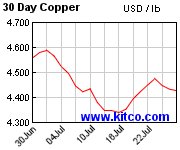
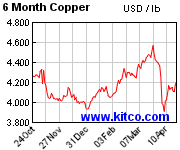
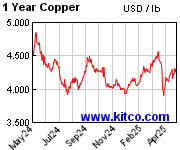
.

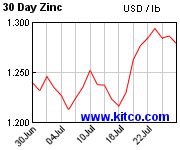
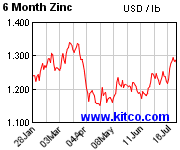
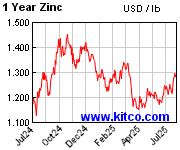
.

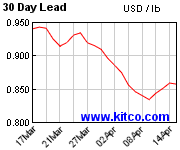
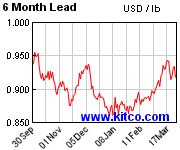
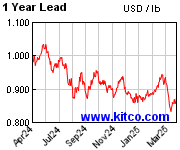
.

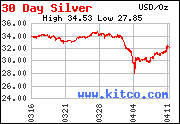
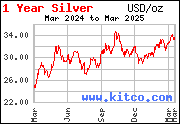
.

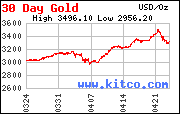
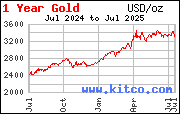
.
.




.




.




.



.



.
- Comodoro
- Mensajes: 980
- Registrado: Jue May 06, 2010 8:24 am
- Ubicación: LIMA
¿Quién está conectado?
Usuarios navegando por este Foro: No hay usuarios registrados visitando el Foro y 15 invitados
